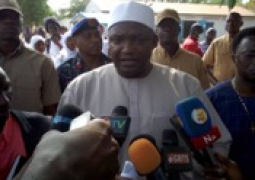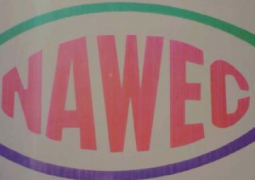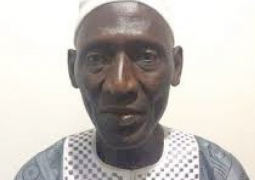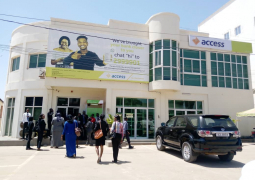
The conference drew leaders of all registered political parties, senior government officials, representatives of the Independent Electoral Commission (IEC), the National Human Rights Commission (NHRC), and multiple UN agencies, alongside members of civil society and the media.
The conference was observed with the presentation of the NHRC’s study on the prevalence of hate speech, followed by the handover of banners and a joint pledge by all political parties to combat hate speech and negative stereotyping. Participants agreed that The Gambia’s democracy can only thrive through tolerance, respect, and inclusive dialogue.
It also served as a platform for national reflection and collective commitment to peaceful, respectful, and inclusive public discourse.
Opening the conference, Hon. Saikou Bah, Co-Chairperson of the IPC and National Assembly Member for Basse, described the event as “a defining moment in The Gambia’s democratic journey”. He emphasised that the IPC’s countrywide consultations covering all eight administrative regions and engaging more than 500 political leaders, youth, and women had revealed a shared desire for unity and political maturity.
“Freedom comes with responsibility,” Hon. Bah stated. “Every voice should be heard, but our words must reflect unity and coexistence. Hate speech breeds division and mistrust, and we must stand together to end it.”
He called on all political actors to commit not only to dialogue but also to practical action, training party members, monitoring campaign language, and upholding the spirit of inclusive politics, especially as the country approaches elections.
Representing the UN Resident Coordinator, Ms Ndeye Rose Sarr, UNFPA Country Representative, praised the IPC and UNESCO for spearheading what she termed “a timely and essential national conversation”. She underscored that the fight against hate speech is not about silencing criticism but ensuring that political expression remains constructive and non-violent.
“Combating hate speech is about ensuring that speech does not become a weapon of exclusion, division, or violence,” she said. “It is about protecting democracy and dignity while balancing freedom with responsibility.”
Ms Sarr linked the initiative to the United Nations Strategy and Plan of Action on Hate Speech (2019) and Sustainable Development Goal 16, emphasising that peaceful and inclusive societies are the foundation of sustainable development.
She also highlighted the vulnerability of women and youth to online and offline hate, calling for stronger mechanisms to protect them and empower their voices in political life.
Michelle Elvis Kenmoe, Regional Advisor for Communications and Information at UNESCO Dakar, reaffirmed the organisation’s commitment to promoting social cohesion and political tolerance.
He implored that their engagement in politics should be a tool for inclusion, not division.” He said “Only a peaceful and united Gambia can achieve sustainable progress.”
Kenmoe commended the IPC and IEC for their proactive nationwide engagement, acknowledging that their efforts to sensitise communities on hate speech were key to building trust ahead of future elections.
Speaking on behalf of the Commission, Mr Cherno Jallow, Vice Chairman of the Independent Electoral Commission (IEC), cautioned that hate speech and misinformation have the potential to erode public trust in national institutions and democratic processes.
“If you discredit the very institutions meant to safeguard democracy, you undermine the credibility of the entire electoral process,” he warned.
He urged all political actors to prioritise truth, tolerance, and responsible communication within their parties.
“Fighting hate speech must begin from within. The IEC stands ready to collaborate with all parties to ensure peaceful, credible, and inclusive elections,” he added.
Hon. Halifa Sallah, veteran politician, Party Leader of PDOIS, and co-founder of the IPC, described the forum as “a national moment of reckoning”.
“Today, we are assembled to bury a mischief called hate speech,” he declared. “On its tomb, we should write: Never again.”
Sallah revisited the IPC’s origins, recounting its creation in the midst of political tension and its mission to restore trust among parties through dialogue and respect. He emphasised that the IPC’s Code of Conduct anchored in freedom, equality, and non-violence must be internalised by all political actors if peace is to endure.
“A peaceful society is impossible without respect for the code of conduct that binds us,” he said. “We may differ in our ideas, but we must coexist in peace. The Gambia belongs to all of us.”





